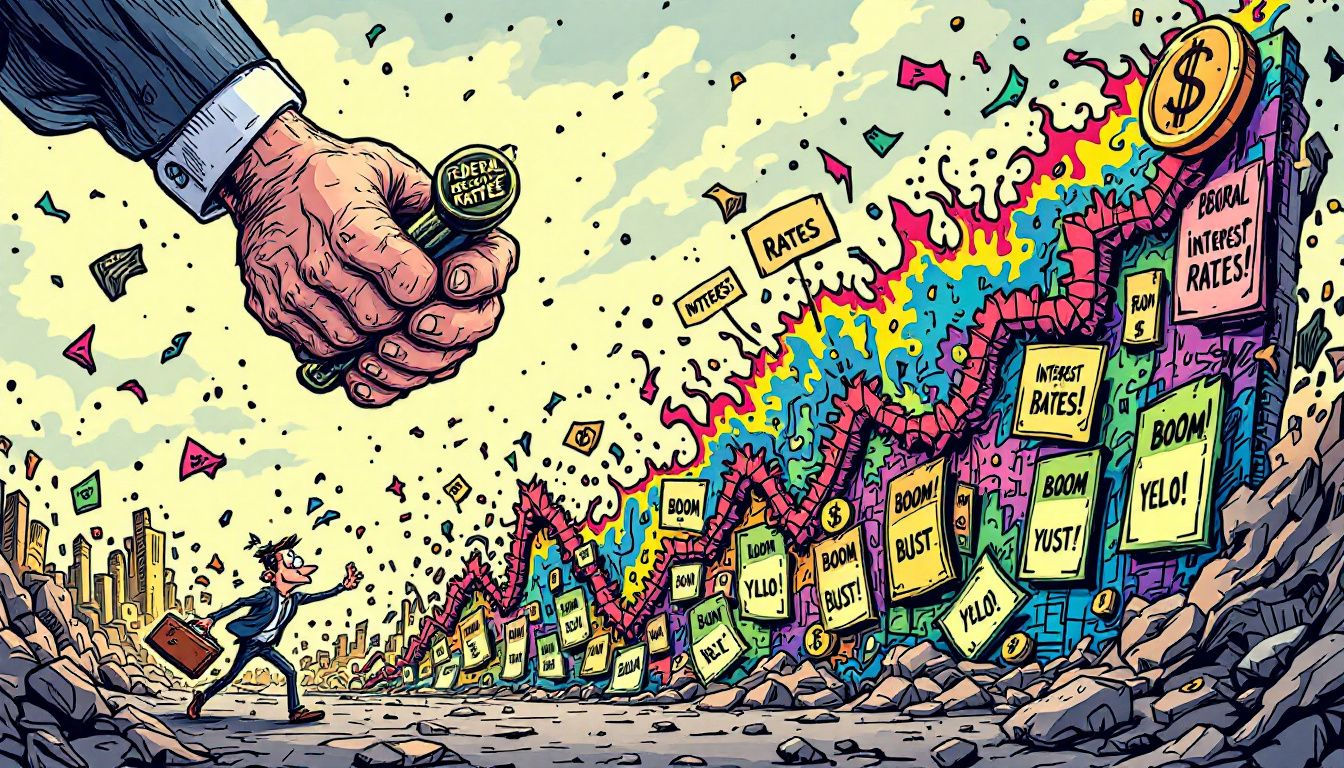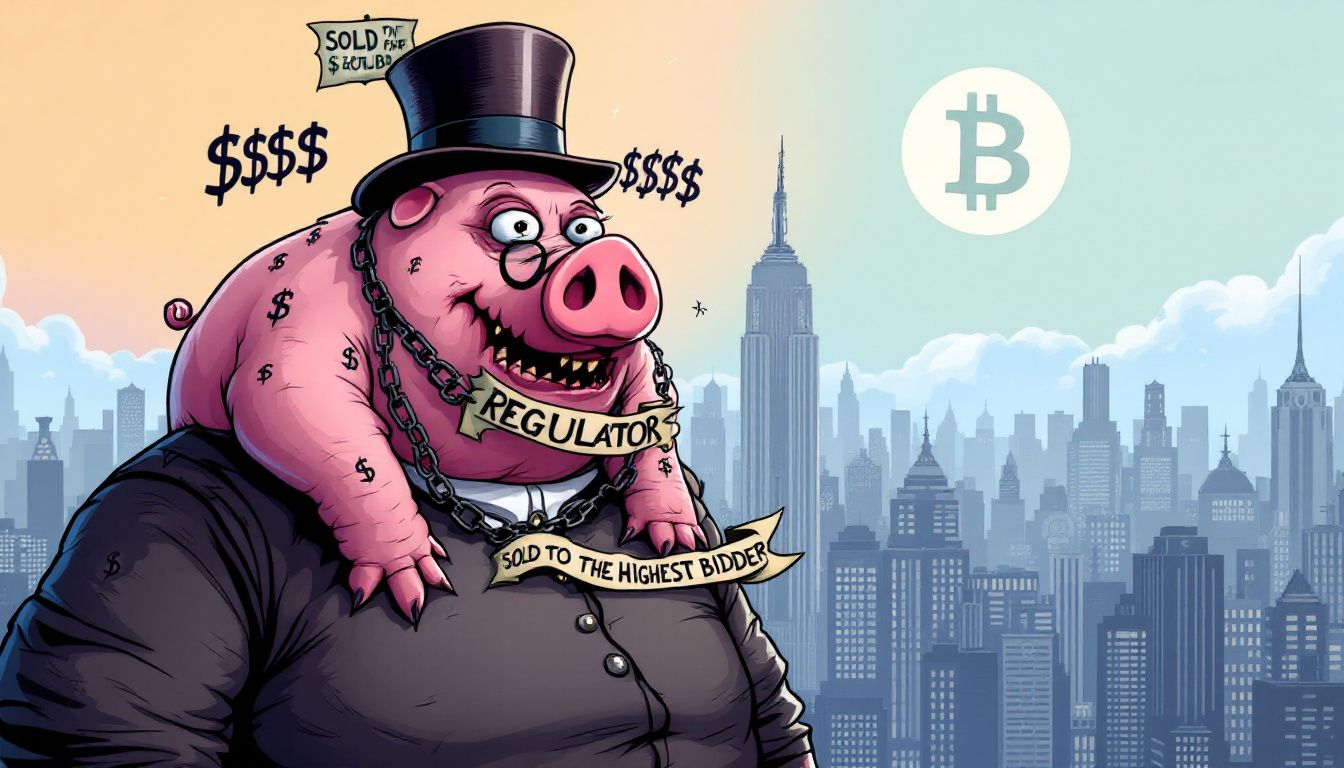Wondering how President-elect Donald Trump’s confirmed victory and new appointments are poised to transform the U.S. crypto landscape? After initially expressing skepticism, Trump’s recent policy moves and leadership choices signal a definitive pivot toward a more supportive regulatory framework for digital assets. This new direction, marked by key appointments and an assertive agenda to foster crypto innovation, is already reshaping market sentiment and attracting global attention.
Key Takeaways
- Pro-Crypto Leadership at the SEC: President-elect Trump has nominated Paul Atkins—a known advocate for less restrictive financial regulations—to head the SEC. His appointment is expected to unwind the stricter approaches of the previous chair and potentially usher in crypto-friendly policies.
- New White House AI and Crypto Czar: Former PayPal COO David Sacks will oversee a strategic push into artificial intelligence and cryptocurrencies from the White House. His mission: craft a comprehensive legal framework to encourage crypto growth and cement America’s position as a digital asset leader.
- Market Confidence Surges: Bitcoin’s price breaking the $100,000 threshold underscores growing investor confidence in the new administration’s stance, as the market anticipates more balanced regulations and widespread institutional adoption.
Trump’s Confirmed Shift Toward Pro-Crypto Policies

Before his 2024 election win, Donald Trump often voiced skepticism regarding cryptocurrency. However, upon securing the presidency, Trump has decisively reframed his position. During the Bitcoin 2024 conference and in subsequent policy statements, he made it clear: his administration intends to create a friendlier environment for crypto innovation, investment, and integration into the traditional financial system.
Central to this effort is the formation of a U.S. national Bitcoin reserve—an audacious move that signals a commitment to placing America at the forefront of the global digital asset economy. This evolution represents a strategic effort to ensure the U.S. not only catches up to, but surpasses, global competitors in crypto adoption and blockchain development.
New Appointments Reflect a Pro-Crypto Agenda

Paul Atkins as SEC Chair (BARRON’S)
President-elect Trump’s nomination of Paul Atkins to lead the SEC is a crucial step. Atkins, who served as an SEC commissioner from 2002 to 2008, is known for challenging overly burdensome regulations. His sympathetic view toward digital assets stands in stark contrast to the previous chair, Gary Gensler, who championed a tougher stance on cryptocurrencies. Under Atkins’ leadership, the SEC is expected to:
- Simplify Regulatory Pathways: Reduce uncertainty and complexity for crypto projects seeking to comply with federal laws.
- Greenlight Crypto ETFs and Other Products: Ease barriers to creating exchange-traded funds and other regulated vehicles, allowing mainstream investors greater access to digital assets.
- Foster a Growth-Oriented Ecosystem: Encourage U.S. companies to remain stateside, generate jobs, and spur entrepreneurial innovation in the crypto sector.
David Sacks as White House AI and Cryptocurrency Czar (NEW YORK POST)
In a newly established position, David Sacks—former PayPal COO and a prominent venture capitalist—will spearhead White House efforts to integrate cryptocurrencies into the broader economy. Tasked with harmonizing policies across federal agencies, Sacks will:
- Establish a Comprehensive Legal Framework: Provide clarity on the legal status of various digital assets, reducing the regulatory gray areas that have deterred institutional and retail investors.
- Drive Technological Advancement: Align the U.S. with cutting-edge developments in blockchain and AI, encouraging synergy between these transformative technologies.
- Streamline Cross-Agency Coordination: Ensure federal departments adopt consistent approaches, reducing conflicting regulations and duplicative oversight.
These appointments underscore Trump’s vision of the U.S. as a “crypto capital of the planet,” where innovation thrives and both startups and legacy financial institutions flourish under transparent, supportive oversight.
Market Reactions: Bitcoin and Beyond

Bitcoin Soars Past $100,000 (FINANCIAL TIMES)
The market has responded swiftly and decisively. Bitcoin, often viewed as a barometer of crypto sentiment, surged past $100,000 following the announcement of Trump’s pro-crypto appointments. This price action reflects heightened investor confidence and the belief that a more predictable regulatory environment will unlock significant institutional capital inflows.
Altcoins and DeFi Platforms Anticipate Growth
Ethereum (ETH), Solana (SOL), and other major altcoins stand to gain from a friendlier SEC willing to approve spot ETFs and reduce compliance hurdles. DeFi platforms like Uniswap, bolstered by the prospect of a clearer regulatory framework, have already experienced price increases and renewed investor optimism. Stablecoins—key instruments for liquidity—are poised to benefit from well-defined legislation, further knitting together traditional and decentralized financial infrastructures.
Strategic National Crypto Reserve
Trump’s proposals extend beyond mere rulemaking. By advocating the creation of a national Bitcoin reserve, the administration aims to:
- Legitimize Bitcoin as a Global Asset: Elevate Bitcoin’s status and encourage other nations to recognize its permanence in the global financial ecosystem.
- Stabilize Market Sentiment: By securing a substantial Bitcoin reserve, the U.S. could influence supply-demand dynamics and mitigate extreme price volatility.
- Signal U.S. Dominance in Digital Finance: Assert leadership in the crypto sector, cementing America’s role as a frontrunner in digital asset innovation and policymaking.
This strategic reserve would not only reassure investors but also help the U.S. maintain a technological edge as digital currencies reshape the global economy.
Legislative Outlook for Digital Assets

The legislative environment, once fraught with uncertainty, is on the cusp of significant transformation. With a pro-crypto Congress and supportive executive branch, efforts to pass comprehensive digital asset legislation—such as the FIT 21 Act—stand a strong chance. Policymakers are working to:
- Clarify Oversight Roles: Clearly define the mandates of the SEC and CFTC in governing crypto markets.
- Enact Stablecoin Regulations: Provide legal certainty to stablecoin issuers and users, fostering stable, on-chain liquidity that rivals traditional money market funds.
- Encourage Bipartisan Support: Despite some resistance, bipartisan cooperation is growing, with both parties recognizing the economic potential of a thriving U.S. crypto sector.
As institutional adoption accelerates and market participants demand clearer rules, these legislative reforms could solidify the United States as a global crypto leader.
Potential Ethical Considerations

Not all observers are cheering. Some critics caution that Trump’s policy positions could intersect with his personal financial interests. Ongoing ethical concerns center on whether the Trump family’s stakes in various businesses, including those related to digital assets, might influence decision-making or create conflicts of interest.
The administration’s challenge will be maintaining transparency and accountability. To sustain trust and credibility, regulators and stakeholders must ensure that policy reforms serve the public interest, encouraging innovation without sacrificing integrity.
Summary

President-elect Donald Trump’s confirmed victory and subsequent appointments mark a decisive shift in the U.S. stance on cryptocurrencies. By placing known crypto advocates like Paul Atkins at the SEC and creating a specialized AI and Crypto Czar role for David Sacks, Trump is reshaping regulatory, legislative, and market conditions to favor digital assets. These developments have already fueled a market surge—Bitcoin’s breach of the $100,000 barrier underscores investors’ growing confidence in a more stable, innovation-driven crypto ecosystem.
While challenges remain, including ethical considerations and the need to balance innovation with investor protection, America’s new pro-crypto trajectory could position it as a leading force in the global digital asset arena. In the months and years ahead, the successful implementation of these policies—and their long-term impact—will reveal whether Trump’s vision can truly make the United States the “crypto capital of the planet.”
Frequently Asked Questions
How has Trump’s stance on cryptocurrency evolved?
Trump has shifted from a skeptic to a supporter. Following his confirmed 2024 election victory, he announced policies and appointments designed to foster a crypto-friendly environment—evidenced by the creation of a national Bitcoin reserve and key regulatory leadership changes.
What major regulatory changes can we expect?
Paul Atkins’ appointment as SEC Chair signals a move away from previous stringent regulatory approaches. Expect more defined guidelines, easier paths to crypto ETFs and related products, and a general easing of compliance burdens for U.S.-based crypto firms.
How has the market reacted to Trump’s crypto appointments?
Investor confidence soared after the announcement of pro-crypto appointments, pushing Bitcoin’s price past $100,000 for the first time and fueling optimism that institutions will increasingly enter the market under clearer regulations.
What is the role of David Sacks as the AI and Crypto Czar?
David Sacks will coordinate federal policy on AI and crypto, striving for a unified, investor-friendly framework that encourages technological innovation and greater U.S. competitiveness in the global digital asset economy.
Are there any ethical concerns associated with Trump’s crypto policies?
Critics worry that the Trump family’s private financial interests could influence public policy decisions. Ensuring transparency, accountability, and public-minded policymaking will be crucial to maintaining trust and preventing conflicts of interest.


